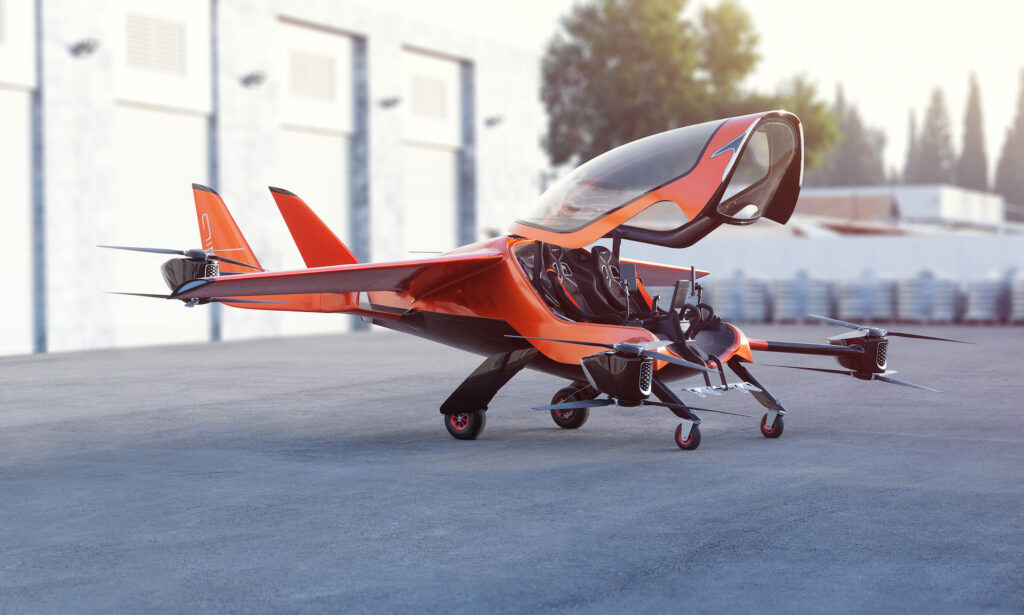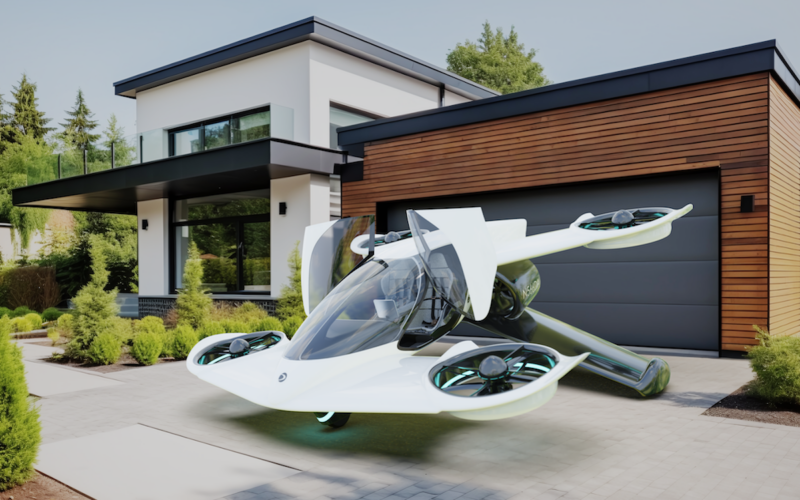The eVTOL industry is getting a great deal of attention at present, and part of this may be due to the anticipation it stirs in many people for a hypothetical ‘Jetsons’-style future, with hordes of flying cars buzzing overhead.
The more prosaic reality may be that, at least in its early stages, the operations of most new forms of advanced air mobility won’t be able to offer the sense of personal freedom afforded by private vehicles. Instead, they’ll have more in common with today’s helicopters or regional aircraft, tethered for practical purposes to a handful of designated landing pads (or ‘vertiports’, in industry parlance).
However, some entrepreneurs are working on literal ‘flying cars’, designed for personal use and small enough to be kept in the owner’s home garage. We’re not talking about ultralight designs with very local uses, such as the RYSE RECON, but about vehicles that could even be used for inter-city travel within a 50 to 60-mile radius.
One such company is Doroni Aerospace, a Miami-based startup that is currently designing a sleek-looking two-seater aircraft with a 60 nm range which anyone with a private pilot’s license could fly out of their front yard.
Doroni Aerospace, which has crowdfunded north of $6 million to date, announced in March 2024 that it had patented the in-wing ducted propulsion system which it will incorporate into its H1-X personal eVTOL aircraft. This is a proprietary technology that the startup expects should give it an edge in the increasingly competitive advanced air mobility space.
The H1-X is the latest and likely final version of Doroni’s first eVTOL. Speaking to AeroTime, the company’s founder and CEO, Doron Merdinger, explained how, over the last two and a half years, his team evaluated 12 or 13 different iterations of their eVTOL concept before finally settling on the current design.
Doron is confident that the in-wing ducted fan his company has developed will deliver a significant increase in terms of lift and a drag reduction, making the H1-X a particularly quiet and energy-efficient aircraft. The encased in-wing design also offers the additional benefit of providing enhanced protection to the propulsion units.
Doroni Aerospace had already conducted some indoor hovering tests with earlier prototypes of its eVTOL aircraft, and in November 2023 it also secured authorization from the Federal Aviation Administration (FAA) to conduct outdoor flight tests.
In early 2024, however, Doroni presented a new version of its concept, the aforementioned H1-X, which will now need to secure a new authorization to proceed with the flight test program (thus far, H1-X’s in-flight performance has only been computer simulated). The firm expects that this process will take most of 2024.
If all goes according to plan, though, a prototype of the H1-X should be ready for testing at the beginning of 2025.
Doron declared that his firm is now looking to raise an additional $30M through a Series A round that allows the company to move onto the industrial production stage. He then expects to be able to scale up production to seven units per month by 2026 and start clearing a backlog of more than 400 orders that Doroni Aerospace claims it has already received.
“People were promised ‘The Jetsons’, and perhaps the problem is they were given the wrong word, since personal air mobility won’t happen through jets, but through other, more user-friendly and cleaner technologies!”, exclaimed Doron when sharing his vision for the future of the personal eVTOL space with AeroTime.
Doroni Aerospace is targeting the same market as AIR, another two-seater eVTOL developer focused on the personal mobility market.

AIR, which uses an eight-rotor open propulsion system, claims to have already pre-sold 800 units of its AIR ONE eVTOL, which, as in Doroni Aerospace’s case, has a range of some 60 nautical miles.
Although its primary mission is to move by air, in case it needs to be transported long distances by road AIR ONE AIR can also be folded manually, by a single person, and put on a trailer. AIR ONE’s retail price? It starts from $150,000.
The fully electric aircraft has already successfully completed advanced flight tests in real conditions and is currently pursuing FAA certification, with deliveries expected to start shortly after.
It’s not only aviation enthusiasts and private pilots who have set their sights on this new category of aircraft: AIR is also participating in the US Air Force AFWERX Agility Prime Program, which evaluates novel technologies for military uses.

